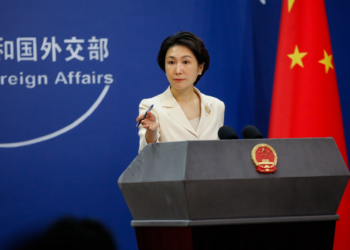Pakistan’s steadily expanding digital economy is capturing heightened attention from venture capital firms across Asia, positioning the nation as an untapped frontier for high-growth opportunities outside established investment hubs. With a population exceeding 240 million—the world’s fifth-largest—the country offers a vast consumer base dominated by a young, tech-oriented demographic. Over 60% of Pakistanis are under 30, a statistic investors frequently highlight as a cornerstone of its digital promise.
“Pakistan stands as one of Asia’s most undervalued yet promising digital markets,” remarked Thomas G. Tsao, Co-Founder and Chairperson of Gobi Partners, in an interview. Drawing parallels to China’s early digital evolution, Tsao noted, “Pakistan today mirrors China in 2002, where a massive population and rising internet adoption set the stage for rapid technological scaling.”
Gobi Partners entered Pakistan in 2018 during the ecosystem’s nascent phase. “We encountered a nation brimming with energy, talent, and ambition,” Tsao emphasized, citing the country’s youthful workforce and improving connectivity as catalysts for their investments. The firm has since launched initiatives such as the USD 30 million Techxila Fund I and USD 50 million Techxila Fund II, backing startups like Sastaticket.pk (travel tech), DealCart (social commerce), PriceOye (e-commerce), and Abhi (fintech). These funds have reportedly delivered top-quartile returns for their vintage years.
Despite early momentum, Pakistan’s startup ecosystem faced significant funding declines in recent years. Venture capital inflows plummeted from peaks of $365.8 million in 2021 and $332.4 million in 2022 to $75.6 million in 2023—a 77.2% year-on-year drop—driven by global economic pressures and domestic instability. The downturn persisted into 2024, with total funding sinking to $42.5 million, a 42.5% annual decline.
However, Q4 2024 signaled a rebound, contributing 62% of the year’s total funding. Key deals included ABHI’s $15 million debt round led by Shorooq Partners and Amplify Growth, Laam Technologies’ $5.5 million seed funding, and a $15 million climate-tech commitment from the Green Climate Fund. Fintech emerged as the dominant sector, underscoring investor confidence in digital financial solutions.
“While Pakistan may not dominate global investor agendas, its fundamentals are undeniable,” Tsao asserted. He pointed to surging mobile accessibility, affordable data rates, and rising smartphone adoption as enablers of digital transformation. Government initiatives, including plans to launch 5G by 2025 and expand fiber-optic coverage to 60% of sites, aim to bolster infrastructure.
The ecosystem also benefits from a maturing talent pool, with founders often returning from overseas education or multinational careers to launch startups. Local engineers and product managers are increasingly gaining experience within homegrown ventures, while programs like the Special Technology Zones Authority (STZA) and public-service digitization efforts aim to strengthen the entrepreneurial landscape.
Analysts from CB Insights and PitchBook project a resurgence in global mid-to-late-stage funding and AI investments by 2025, potentially benefiting Pakistan’s tech sector. Challenges persist, including regulatory ambiguity, currency volatility, and security risks. Yet Tsao remains optimistic: “Exceptional talent exists everywhere, but access to opportunity does not. Our role is to close that gap.”
As Pakistan’s market matures, investors are shifting focus from feasibility to execution—navigating risks while identifying scalable exit strategies. For regional VCs, the nation’s blend of demographic potential, low infrastructure costs, and digital hunger increasingly positions it as Asia’s next frontier for high-impact tech investments.
















